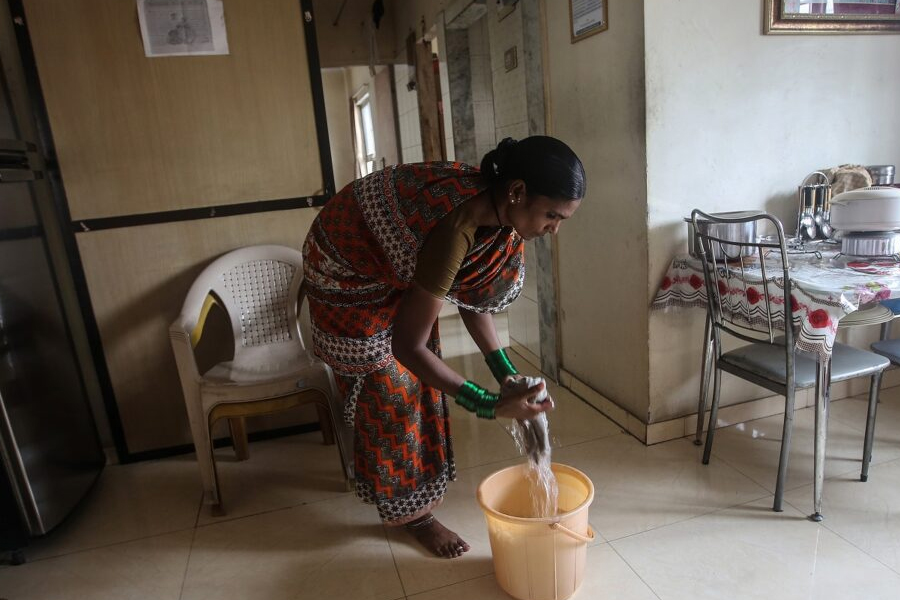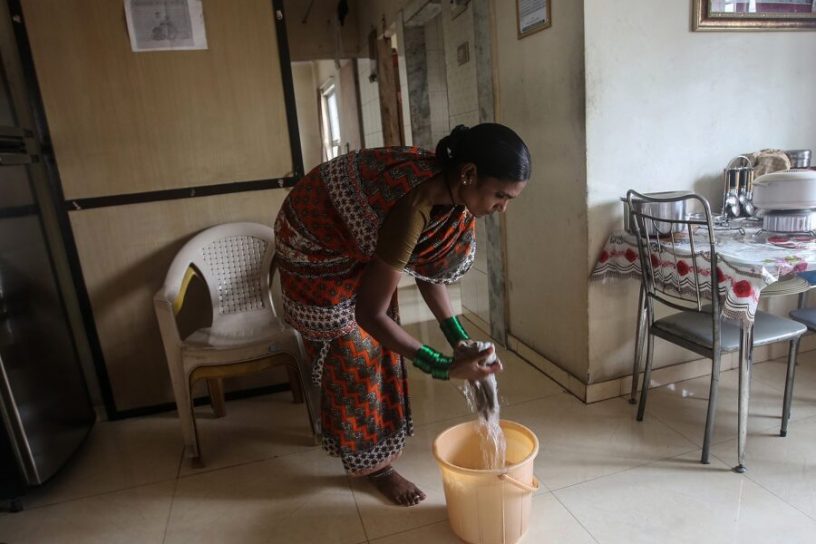
The job-losses followed by decline in their incomes altered their expenditure, consumption and even made access to medical facilities almost inaccessible at the time of the health crisis, finds the study.
Authors
Deepanshu Mohan, Associate Professor of Economics and Director, Centre for New Economics Studies (CNES), Jindal School of Liberal Arts and Humanities, O.P. Jindal Global University, Sonipat, Haryana, India.
Richa Sekhani, Senior Research Analyst at Centre for New Economics Studies (CNES), Jindal School of Liberal Arts and Humanities, OP Jindal Global University, and Research Associate at Indian Council for Research in International Economic Relations (ICRIER).
Jignesh Mistry, Senior Research Analyst and the Visual Storyboard Team Lead at Centre for New Economics Studies (CNES), Jindal School of Liberal Arts and Humanities, O.P. Jindal Global University, Sonipat, Haryana, India.
Sunanda Mishra, PHD Scholar, Population Research Centre, University of Lucknow, Uttar Pradesh, India.
Advaita Singh, Senior Research Analyst with Centre for New Economics Studies (CNES), Jindal School of Liberal Arts and Humanities, O.P. Jindal Global University, Sonipat, Haryana, India.
Vanshika Mittal, Senior Research Analyst with Centre for New Economics Studies (CNES), Jindal School of Liberal Arts and Humanities, O.P. Jindal Global University, Sonipat, Haryana, India.
Rekha Pachauri, Assistant Professor at Bennett University, Greater Noida, Uttar Pradesh.
Sakshi Chindaliyan, Senior Research Assistant and TRIP fellow, Centre for New Economics Studies (CNES), Jindal School of Liberal Arts and Humanities, O.P. Jindal Global University, Sonipat, Haryana, India.
Tanushree Mohan, Senior Manager in Deloitte, Canada.
Summary
Domestic workers are one of the most unprotected groups of the global workforce in informal employment who remain outside the ambit of social security and legal protection. Despite their significant contribution to the economy and society, they are often invisible and undervalued.
The pre-existing adversities and vulnerabilities became all the more evident during the recent health crisis. While different groups of workers faced constraints to support their livelihood, the women domestic workers were hardest hit, facing total or near unemployment, job losses and economic distress.
This paper attempts to analyse the impact of pandemic on the lives and livelihoods of female domestic workers in five Indian cities including Pune, Lucknow, Jhansi, Katni and Bhopal.
The analytical findings from the random sample survey of 250 female domestic workers provide a temporal analysis of the impact of Covid-19 on the nature of work, income, expenditure and consumption across the various cities of India. Our findings not only increase our understanding on the impact of the crisis for domestic worker but also informal workers in general.
Published in: International Journal of Health Sciences (IJHS)
To read the full article, please click here.


